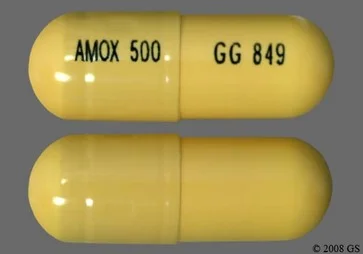DRUG OF THE DAY: AMOXCILLIN
Amoxicillin is a semi synthetic compound that is structurally similar to ampicillin; it is a derivative of penicillin G that was developed to increase the spectrum of susceptible bacteria meaning that it would provide treatment for a wider coverage of bacteria. This drug was discovered in 1979 and then marketed by GlaxoSmithKline under the brand name Amoxil.
For better protection, clavulanic acid has also been added to amoxicillin (brand name Augmentin) to form another drug which works to inactivate the bacterial enzyme that would inactivate the antibiotic and make it more effective against certain infections.
Amoxicillin is better absorbed in the GI tract than other penicillins; it is also safe in children (commonly used for ear infections) and is available in generic so is pretty inexpensive.
What is it for:
Amoxicillin is used to treat and protect again infections caused mainly by certain gram positive bacteria. It is usually used to treat otitis media, sinusitis, and infections caused by susceptible organisms involving the upper and lower respiratory tract, skin, and urinary tract; as part of a multidrug regimen for H. pylori eradication; and periodontitis.
How does it work:
Amoxicillin inhibits bacterial cell wall synthesis by binding to one or more of the penicillin-binding proteins (PBPs) which in turn inhibits the final step of peptidoglycan synthesis in bacterial cell walls, thus inhibiting cell wall biosynthesis. Bacteria eventually die due to ongoing activity of cell wall autolytic enzymes while cell wall assembly is stopped.
Side effects:
Allergic reaction
Diarrhea
GI upset
Rash
Headache
What I should know:
Contact your doctor right away if you experience an allergic reaction
Do not use if you have had an allergic reaction in the past to another penicillin antibiotic
Don't skip a dose
Ask your doctor about using back up birth control while you are on this medication
Finish the course of therapy even if you are feeling better
Contact your doctor immediately if you experience a severe skin reaction, easy bruising, unusual bleeding, white sores inside your mouth, tingling, numbness or muscle weakness

